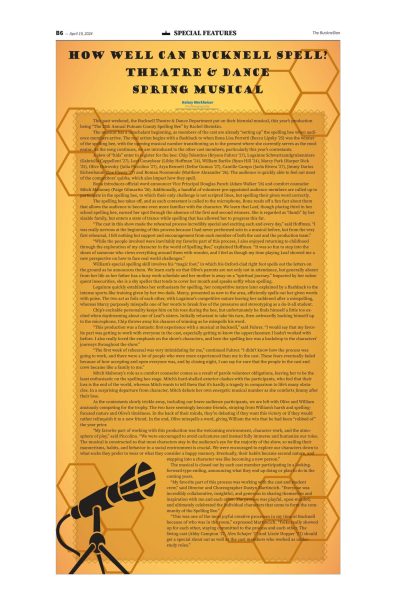Second case of meningitis found on campus
September 18, 2014
Dean of Students Susan Lantz sent an email on Sept. 1 to inform the student body that a student had recently been diagnosed with meningitis. Lantz sent another email on Sept. 11 disclosing that a second student had been diagnosed with meningitis and an above average number of students have sought treatment for viral infections.
Meningitis is an inflammation of the meninges, the membranes surrounding the brain and spinal cord. It is caused by either a viral or bacterial infection and accompanied by symptoms such as a strong fever or headache, nausea, and a stiff neck.
“There has been a viral infection that’s been around campus. As far as the number of cases of meningitis, most students aren’t having a spinal tap done to confirm diagnosis,” Bucknell Student Health (BSH) Lead Physician Catherine O’Neil said.
She said that the students experiencing symptoms of the virus are improving and doing well. Lantz has been in communication with the parents of the affected students.
“The students are doing much better. They are on the road to recovery, which is great,” Lantz said.
Though O’Neil has only been working at the University since November of last year, she said that there have been cases of meningitis since she’s been here.
“This is a common time of year, the fall, and sometimes into spring also, for viruses to come around. Mostly GI bugs start it initially, but they can come from respiratory also,” O’Neil said.
Regardless of its past prevalence on campus, the commonality of certain diseases doesn’t make their appearances any less important.
“It’s something for us to be real responsive to when it happens. It’s not unusual for college students to get sick,” Lantz said. “I think it’s really important for students to continue to be very cautious. The precautions that we outlined in the emails are very good advice for any type of illness, any viral infection.”
Lantz assured the University community that the appropriate steps are being taken to deal with the health issue.
“We are taking every precaution necessary and working very closely with facilities and dining services. We are very careful about our cleaning regimens,” Lantz said.
O’Neil urges students to cover their mouths, avoid sharing anything that comes into contact with their mouths, always wash their hands, and refrain from drugs like cigarettes and alcohol. She also highlighted the importance of regular sleep and exercise as well as maintaining a healthy diet. Living in such close quarters on campus should keep everyone alert to being exposed to this infection.
“This is an age group more common to get meningitis, and we have lots of you,” O’Neil said.


























